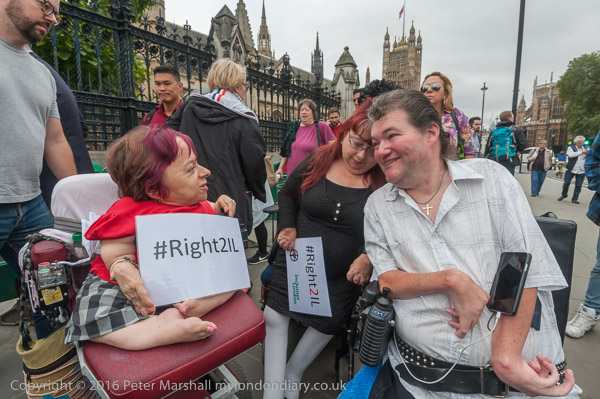
Sophie Partridge, Penny Pepper and John Kelly outside Parliament
DPAC – Disabled People Against Cuts – always amaze me at their protests. If anyone doubts that people with disabilities have a great deal to offer society they should come and see how despite their problems they organise and run some of the most effective actions by any group, and this was one.
Of course many need some support to do so, and to live normal lives contributing to the community. And one of the cruelest acts of the government in recent years has been to remove much of that support, with the end of the Independent Living Fund. The ILF enabled so many to make a real contribution.
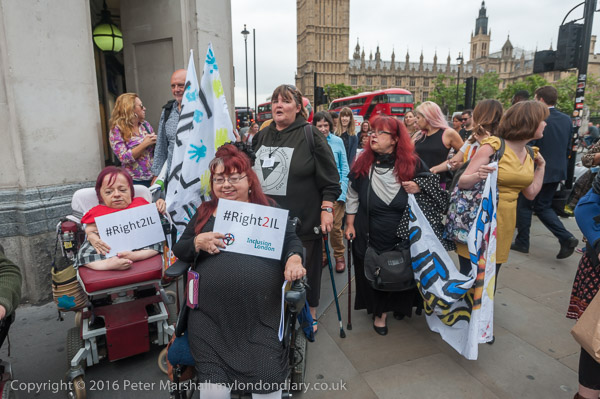
The Paralympic Games in London in 2012 made many realise the potential of a relatively small group of disabled people who have much to offer in the sporting field, but only a tiny proportion of the disabled have the wish or ability to succeed in sport. Others have talents in other areas but will only be able to develop and make use of these given the kind of support that the ILF provided. This protest was planned to coincide with the Rio Paralympics and to make the point that what the great majority of disabled people need is disabled rights, not games. Being disabled isn’t a game.
I don’t like to call these people disabled. In some ways many of them are rather more able in their particular fields than I would ever be, able in some areas to compete fully with those without disabilities.
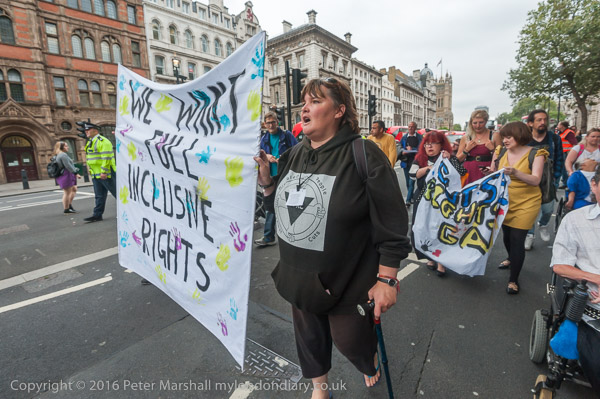
Paula Peters leads the march to Downing St
DPAC had been in Parliament to lobby MPs on the publication of the report by Inclusion London ‘One Year ON’, evaluating the disastrous effects of cutting care and support funding for personal assistance following the closure of the Independent Living Fund in 2015.
They gathered on the pavement outside before marching up Parliament St and Whitehall to stage a ‘Pop-Up’ Street theatre performance on the roadway in front of the gates of Downing St, with poems, songs, spoken word and performances showcasing the creativity of disabled people and the contribution they can make to society with proper support.
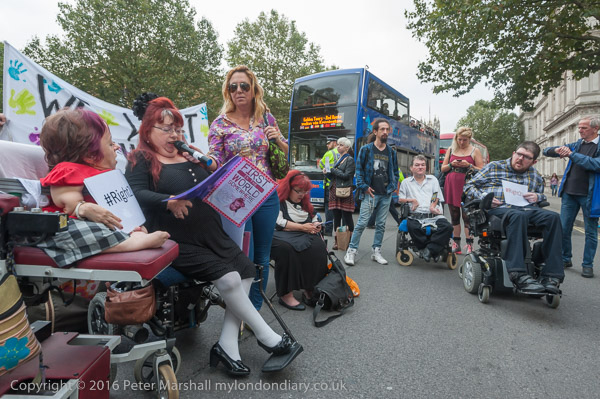
Police attempted to get them to move off the road, but without success, though they did move to only block one of the two lanes – and police then directed traffic around them while the performance continued.
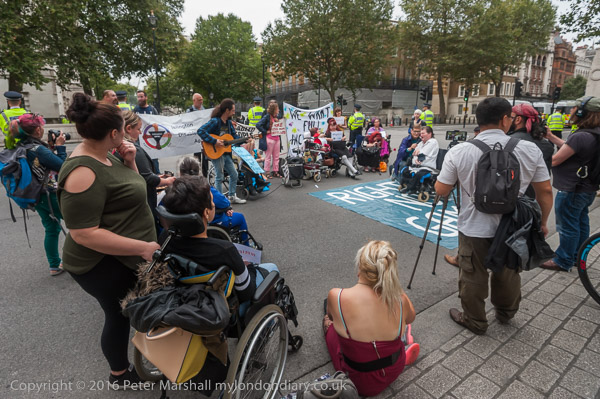
If I closed my eyes there would be nothing to tell me that these people were disabled as they performed, and of course there are many with disabilities, including several who spoke at the event, that have disabilities without any visible signs. As well as DPAC and Inclusion London, other groups supporting the protest included Winvisible, campaigning for women with visible and invisible disabilities and several mental health groups.
More at DPAC against cuts in care & support.
______________________________________________________
There are no adverts on this site and it receives no sponsorship, and I like to keep it that way. But it does take a considerable amount of my time and thought, and if you enjoy reading it, a small donation – perhaps the cost of a beer – would be appreciated.
My London Diary : Buildings of London : River Lea/Lee Valley : London’s Industrial Heritage
All photographs on this and my other sites, unless otherwise stated, are taken by and copyright of Peter Marshall, and are available for reproduction or can be bought as prints.
To order prints or reproduce images
________________________________________________________